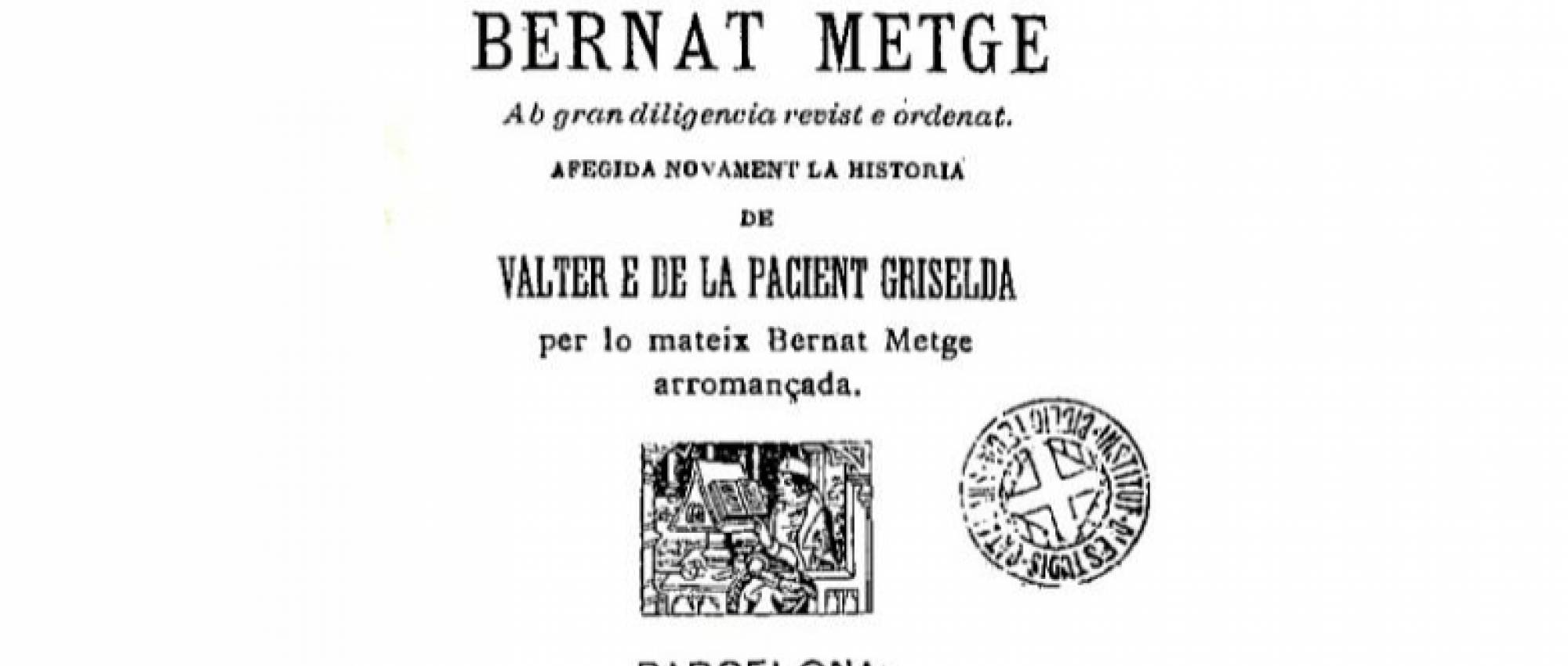Bernat Metge Humanism in the Catalan literature
 Library of the Institut d'Estudis Catalans (Institute of Catalan Studies) / Wikimedia Commons. Public Domain
Library of the Institut d'Estudis Catalans (Institute of Catalan Studies) / Wikimedia Commons. Public Domain
Bernat Metge (1346-1413) was the first representative of humanism in Catalan literature and introduced the Renaissance style. Intelligent and sharp, he was the author of one of the principal works of ancient Catalan literature, Lo Somni (The Dream, 1399).
He received his first training in natural philosophy from his father, the apothecary Guillem Metge. When his natural father died, his mother married Ferrer Saiol, an official in the Royal Chancellery. His step-father introduced him to the art of writing and to a brilliant career in the service of the state which led him to become Royal Secretary to King John I and later to the king's brother, Martin the Humane.
Among his early works there are Llibre de Fortuna e Prudència (The Book of Fortune and Prudence - 1381) and Valter e Griselda, a translation from the Petrarch’s Latin version of the story from the Decameron. Also the satirical works El Sermó (The Sermon) and Medicina apropiada a tot mal (Medicine for Every Ill).
Lo Somni came preceded by scandal. After the death in murky circumstances of King John, in a hunting accident in 1396, a conspiracy incriminated the ministers and courtiers, including Metge. He was accused of corruption, betrayal and affront to the King. Even though he was acquitted by Martin I when he took the throne, this episode left its mark on his life and work.
Lo Somni presents a dialogue between Bernard, King John I and the mythological figures Orpheus and Tiresias. The monarch is located in purgatory, on the road to salvation and Bernard, the alter ego of the author, appears to him. The goal that Metge pursued in writing the work was to prove his innocence of the charges made against him, although the result is a multi-faceted work that breaks with all that had gone before.